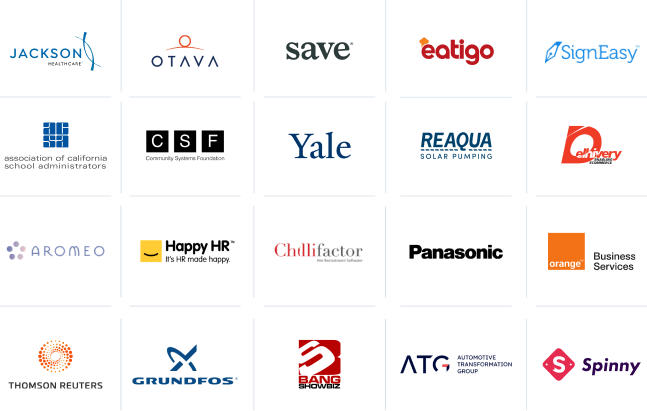Java Enterprise Development
Java Enterprise Development uses Java technologies and frameworks to create large-scale, enterprise-level web applications.
It leverages Java EE (Enterprise Edition) technologies like Servlets, JavaServer Pages (JSP), Enterprise JavaBeans (EJB), and Java Persistence API (JPA).
Java Enterprise Development provides scalability, reliability, and security features, making it suitable for complex and mission-critical applications.
It allows organizations to build robust and scalable systems that handle high traffic and demanding business requirements.
Companies can leverage the extensive Java ecosystem, including libraries, frameworks, and tools, to build enterprise-grade web applications using Java Enterprise Development.
Types of Java Web Development Services
Java Web Development Services encompass a wide range of offerings. These services include:
- Custom web application development
- Java-based content management systems (CMS)
- e-commerce solutions
- Enterprise portal development
- API development and integration
These services empower businesses to leverage Java’s capabilities in building scalable, secure, and feature-rich web applications that cater to their unique requirements.
Benefits of Java for Web Application Development
Using Java for web application development has several advantages. Firstly, Java is platform-independent, allowing applications to run on various operating systems and devices.
This cross-platform compatibility ensures wider reach and accessibility for end-users. Secondly, Java’s extensive libraries and frameworks provide pre-built solutions for common functionalities, saving development time and effort.
Additionally, Java’s robustness, security features, and scalability make it suitable for developing enterprise-level applications that handle high traffic volumes and complex business logic.
Moreover, Java has a vast developer community and ample resources, ensuring ongoing support and continuous improvement. Finally, Java’s strong backward compatibility allows businesses to maintain and enhance their Java applications without significant disruptions.
Overall, Java holds a great importance for software development and its applications.
Key Frameworks and Tools in Java Web Development
Spring Framework: A popular Java framework that provides comprehensive infrastructure support for developing enterprise-grade web applications.
JavaServer Faces (JSF): A component-based web framework that simplifies the development of user interfaces for Java web applications.
Hibernate: An Object-Relational Mapping (ORM) framework that facilitates the integration of Java web applications with databases.
Apache Struts: A framework for building web applications based on the Model-View-Controller (MVC) architectural pattern.
Apache Maven: A build automation tool that simplifies the management and building of Java projects.
Eclipse IDE: An integrated development environment that offers powerful tools for Java web application development, including code editing, debugging, and deployment capabilities.
To know more, explore the list of 10 most popular Javascript Frameworks.
Security Considerations in Java Web Development
Input Validation: Implement proper input validation techniques to prevent common security vulnerabilities such as SQL injection and cross-site scripting (XSS) attacks.
Authentication and Authorization: Use secure authentication mechanisms, such as hashed passwords and multi-factor authentication, to verify the identity of users. Implement fine-grained authorization controls to restrict access to sensitive resources.
Secure Communication: Ensure that sensitive data transmitted between the web application and clients is encrypted using protocols like HTTPS.
Session Management: Implement secure session management techniques, including session expiration, secure session storage, and protection against session hijacking.
Error Handling and Logging: Properly handle and log errors to prevent information leakage that could be exploited by attackers.
Security Testing: Perform regular security testing, including vulnerability scanning and penetration testing, to identify and address potential security flaws.
Cross-Platform Compatibility in Java Web Development
Write Once, Run Anywhere: Java’s platform independence allows web applications to run on different operating systems and hardware architectures without requiring major modifications.
Java Virtual Machine (JVM): The JVM acts as an intermediary between the Java code and the underlying platform, providing a consistent runtime environment for Java web applications.
Web Standards and Protocols: Java web applications conform to web standards and protocols, ensuring compatibility across different browsers and platforms.
Responsive Design: Adopting responsive design principles allows Java web applications to dynamically adapt their layout and functionality to different screen sizes and devices.
Comparing .NET, PHP, Java and Python
When it comes to web development and software programming, there are several popular programming languages to choose from. Among them, .NET, PHP, Java, and Python are widely recognized and extensively used across the industry. Each language has its own strengths, features, and areas of application. Understanding the differences between these languages is crucial in selecting the right technology for your specific project requirements.
Here are some basic comparison features of .NET, PHP, Java, and Python:
Popularity and Community Support:
- .NET: Widely adopted for enterprise applications, backed by Microsoft with a large developer community.
- PHP: Popular for web development, powering a significant portion of websites, and supported by a large open-source community.
- Java: Widely used for enterprise-level applications and has a strong developer community.
- Python: Gaining popularity rapidly, known for its simplicity and readability, and supported by an active and vibrant community.
Syntax and Learning Curve:
- .NET: Uses C# and other languages, which have a syntax similar to C++, making it familiar to C-style language developers.
- PHP: Features a more straightforward syntax, particularly suited for web development.
- Java: Has a syntax similar to C++, making it easier for developers with a background in C-style languages to learn.
- Python: Known for its simplicity and readability, with a clean and intuitive syntax that makes it easy to grasp and learn.
Performance and Scalability:
- .NET: Offers high performance and scalability, particularly for Windows-based applications.
- PHP: Performs well for web applications but may have limitations in handling heavy concurrent traffic and large-scale applications.
- Java: Renowned for its performance and scalability, making it suitable for building robust and scalable enterprise-level systems.
- Python: Generally performs well, but may have slightly lower performance compared to other languages due to its interpreted nature.
Frameworks and Libraries:
- .NET: Offers the .NET framework and various frameworks like ASP.NET for web development, Xamarin for mobile app development, and more.
- PHP: Boasts popular frameworks like Laravel, Symfony, and CodeIgniter, providing a robust ecosystem for web development.
- Java: Provides a vast array of frameworks such as Spring, Hibernate, and Apache Struts for different application domains.
- Python: Features extensive libraries and frameworks such as Django, Flask, NumPy, and TensorFlow, catering to various needs.
To help you understand the difference between these four languages in detail, we recommend reading this blog post.
Trends and Technologies in Java Web Development
Microservices Architecture: Breaking down large monolithic applications into smaller, loosely coupled services for improved scalability, flexibility, and maintainability.
Reactive Programming: Embracing reactive programming paradigms and frameworks like Spring WebFlux to build highly responsive and resilient web applications.
Cloud Computing: Leveraging cloud platforms and services, such as Amazon Web Services (AWS) and Microsoft Azure, for hosting and scaling Java web applications.
DevOps Practices: Adopting DevOps principles and tools for continuous integration, deployment, and monitoring of Java web applications.
Containerization: Using containerization technologies like Docker and Kubernetes to package and deploy Java web applications in a lightweight and portable manner.
AI and Machine Learning Integration: Integrating AI and machine learning capabilities into Java web applications to enable intelligent decision-making and personalization.
Progressive Web Apps (PWAs): Developing web applications that combine the best features of web and mobile apps, providing an enhanced user experience and offline functionality.
These trends and technologies reflect the evolving landscape of Java web development and present opportunities to enhance web applications’ functionality, performance, and user experience.









